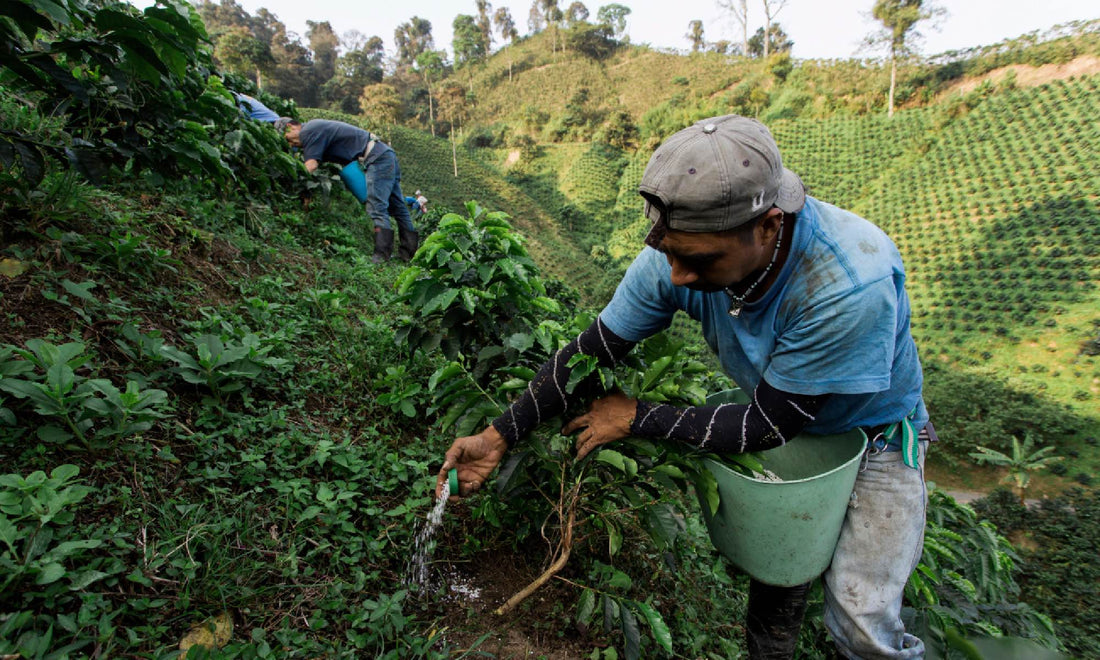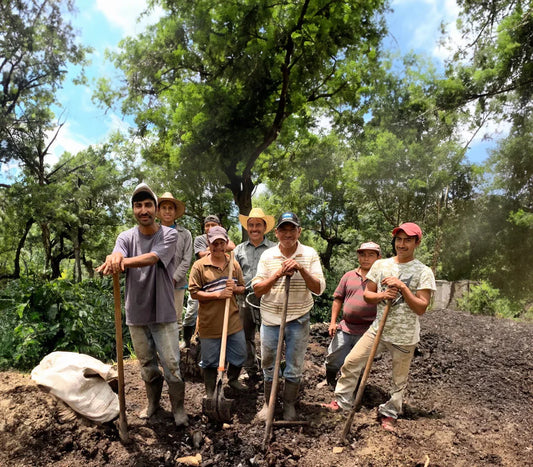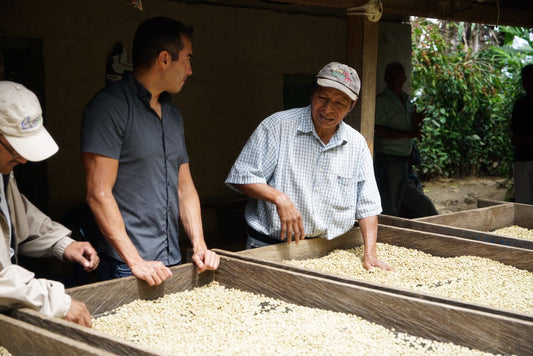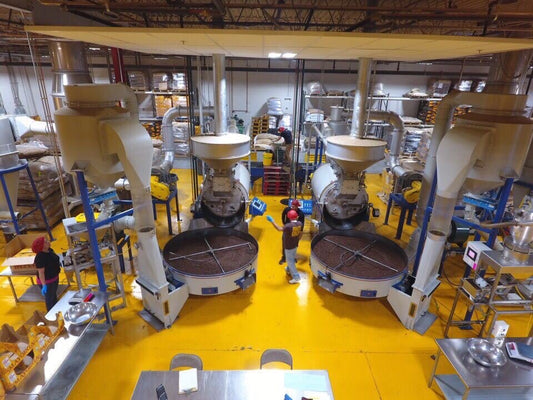
Conventional Coffee Farming Is Poisoning Local Communities
And excuses are running thin on the ground.
When it comes to chemicals, coffee is one of the most heavily treated food crops in the world. According to recent estimates, more than five million tons of pesticides are applied to crops globally, with around 250lbs applied per acre of conventionally grown coffee.
The purpose of using agrochemicals is largely concerned with adding nitrogen, phosphorus, and potassium to the soil to promote plant growth and achieve bigger yields in spite of challenging conditions.
For example, on coffee farms where crops are grown in direct sunlight, 25% more fertilizer is used than on farms where plants are grown in the shade (its preferred spot) to achieve a good harvest.
Developing countries such as Kenya, Uganda, Vietnam, parts of Indonesia, and some Latin American countries use these conventional farming methods as farmers often lack capital and other resources. These farmers rely on subsided agriculture which enables them, via co-operatives, to buy chemical fertilizers at low prices.
However, while these conventional farming methods may artificially "boost" harvests, their effects on the environment and those in proximity can be devastating.
"Chemical inputs such as synthetic fertilizers, pesticides, and additives used in conventional agriculture are harmful to humans, animals, the soil, and water, as well as the plants themselves," says Pedro Henrique Dutra, head of green coffee sales and export at Fazendas Dutra Organic Coffee in Brazil.

The risk of run-offs
Sprayed around the base of coffee plants, chemical fertilizers pollute the air and destroy the soil. They also find their way into rivers during the rainy season when the chemicals leach into streams along with the top soil – especially in deforested areas where crops are planted in clearings.
Referred to as "run-off", this can lead to the contamination of water supplies, including aquifers, which can in turn endanger local wildlife and communities who use the water for drinking, cooking, bathing, and many other daily activities.
For example, when fertilizers used on coffee plants leech nitrate into nearby water sources, it can deplete the oxygen supply and kill aquatic life.
But run-offs aren’t the only thing that causes pollution and concern.
Coffee waste (including pulp, residual matter and parchment) generated during its processing also pollutes natural resources.
It’s estimated that over a six-month period, 547,000 tons of coffee can be processed in Central America, generating as much as 1.1 million tons of pulp and polluting 110,000 cubic meters of water each day.
However, Pedro explains that coffee farming doesn't have to cause pollution.
"Many by-products produced during coffee-farming activities can be returned to the production process, generating agronomic benefits," he says. "Coffee residues and by-products can also be used for good. At Fazendas Dutra, we use the natural waste generated during production as an organic fertilizer."
By switching from conventional to organic farming practices, farmers can cultivate healthy beans and a healthy environment for themselves and their communities.
Martin Mayorga, founder and owner of Mayorga Coffee, a US-based roaster that exclusively sells organic coffee, agrees.
"Supporting organic practices in coffee is non-negotiable if one cares about our environment and our producers’ health," he told Coffee Intelligence. "The spraying that takes place with conventional coffee is laden with chemicals and poisons. It kills vital nutrients in the soil and poisons our farmers' lands and natural water sources.
"I remember I had a moment when I was at a family farm and we talked and hung out, and then they had to go and spray fertilizers.
"These people were putting on space suits to spray the land that they live on and I was thinking, 'If it's so toxic for them right here now, what happens when it’s in the soil? What happens when it rains and runs down into the rivers where the community bathes and gets their drinking water?'
"There is an environmental responsibility to switch to organic – not just for the farmers, but for their communities."

A healthier alternative
Organic coffee farming is the production of coffee without the use of a single artificial agrochemical.
Instead of using synthetic fertilizers and pest control, organic coffee farmers encourage healthy growth and good yields by making use of animal and green manures, organic compost, and crop rotation.
Pedro explains that these farming practices produce healthier, more robust climate-change-resilient plants. That’s because the processes and materials used mimic natural growth and decomposition patterns. This ultimately generates richer, more fertile soil and a more diverse and dynamic ecosystem that can protect itself better against pests.
These plants, Pedro says, also require less irrigation and produce a higher-quality coffee as they are grown in their preferred habitats (high altitude, shady areas), which results in a "denser and much higher standard of coffee".
Of course, organic farming practices do not only benefit the plants and consumers but also the workers and nearby communities who are no longer exposed to harmful toxins in the air, water or soil.
Pedro points out that organic farming also boosts employment in communities: "Local communities are one of the most important resources for us as organic farmers.
"In our region, coffee provides a solid basis for economic, social and community development. Coffee cultivation generates employment and is an important source of money in our community.
"Organic agriculture guarantees more health for everyone in our community, as it is clean agriculture that does not harm nature, does not harm the soil, rivers, and springs, and it is a source of life for all. We have encouraged all producers in our region that organic farming is the way to a better future."
And it seems to have paid off – Latin American producers, specifically farmers in Brazil, Mexico, Costa Rica and Colombia, El Salvador, and Guatemala, currently account for about 75% of global organic coffee production.
"The result of organic farming is environmental and social benefits for all," Pedro says. "The return to the biological, to the natural, is the most obvious solution."


